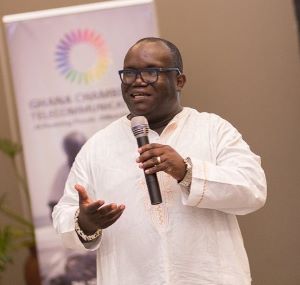The Ghana Chamber of Telecommunications, says despite the tough demands that come with the reconfiguration of the systems of Electronic Money Issuers (EMI’s) in Ghana, for the implementation of the Electronic transfer Levy (E-Levy), its members are committed to making sure the implementation comes off successfully.
The implementation of the E-levy, which is expected to commence in May 2022, was originally expected to help bring in about GH¢6.9 billion this year to shore up government’s revenue.
The Finance Minister, Ken Ofori-Atta, in an interaction with the media, mentioned that government expects systems that will pave the way for the implementation of the electronic transfer levy to be ready from May 2022.
According to Mr. Ofori-Atta, there have been discussions with the Controller and Accountant General’s Department, the Ghana Revenue Authority and other stakeholders in this regard.
The levy is a 1.5 percent tax on electronic transfers that include, but is not limited, to mobile money transfers done between accounts on the same electronic money issuer, mobile money transfers from an account on one electronic money issuer to a recipient on another electronic money issuer, transfers from bank accounts to mobile money accounts, and transfers from mobile money accounts to bank accounts.
The charge will apply to electronic transactions that are more than GH¢100 on a daily basis.
Speaking to Citi Business News on the readiness of the Electronic Money Issuers (EMI’s), Chief Executive Officer of the Ghana Chamber of Telecommunications, Kenneth Ashigbey said they are working with government to ensure the project succeeds.
“We are committed to working with government to make this happen. Not only would we have to do things on our part in terms of configuring our systems and effecting whatever changes that need to be made. It is a tough ask, but as I’ve said, we would on our part work with government and do whatever is feasible and engineering possible to ensure that this project succeeds.”
Mr. Ashigbey further added that all stakeholders are collaborating effectively around the clock to ensure there are no issues.
“We are in constant communication with the Ghana Revenue Authority (GRA) and the [sector] Ministry. There are things we all need to do on our part. It’s for all of us to do what it takes to make this happen. I have to say that it’s really been very cordial and frank. We know that on the side of GRA, they are really putting in the work. We also are putting in the work from our side to ensure we are able to deliver the project as has been defined.”







